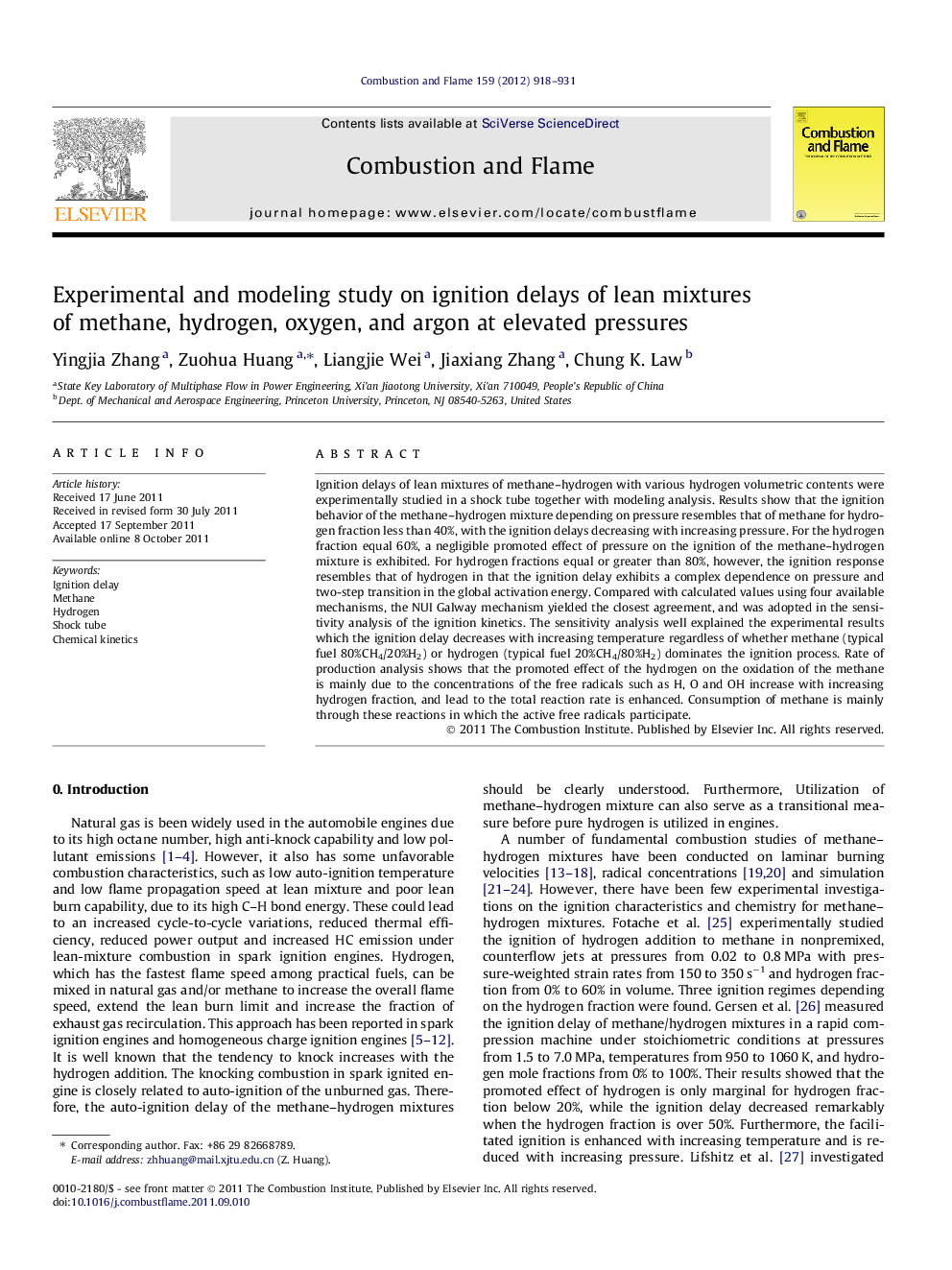| Article ID | Journal | Published Year | Pages | File Type |
|---|---|---|---|---|
| 169032 | Combustion and Flame | 2012 | 14 Pages |
Ignition delays of lean mixtures of methane–hydrogen with various hydrogen volumetric contents were experimentally studied in a shock tube together with modeling analysis. Results show that the ignition behavior of the methane–hydrogen mixture depending on pressure resembles that of methane for hydrogen fraction less than 40%, with the ignition delays decreasing with increasing pressure. For the hydrogen fraction equal 60%, a negligible promoted effect of pressure on the ignition of the methane–hydrogen mixture is exhibited. For hydrogen fractions equal or greater than 80%, however, the ignition response resembles that of hydrogen in that the ignition delay exhibits a complex dependence on pressure and two-step transition in the global activation energy. Compared with calculated values using four available mechanisms, the NUI Galway mechanism yielded the closest agreement, and was adopted in the sensitivity analysis of the ignition kinetics. The sensitivity analysis well explained the experimental results which the ignition delay decreases with increasing temperature regardless of whether methane (typical fuel 80%CH4/20%H2) or hydrogen (typical fuel 20%CH4/80%H2) dominates the ignition process. Rate of production analysis shows that the promoted effect of the hydrogen on the oxidation of the methane is mainly due to the concentrations of the free radicals such as H, O and OH increase with increasing hydrogen fraction, and lead to the total reaction rate is enhanced. Consumption of methane is mainly through these reactions in which the active free radicals participate.
